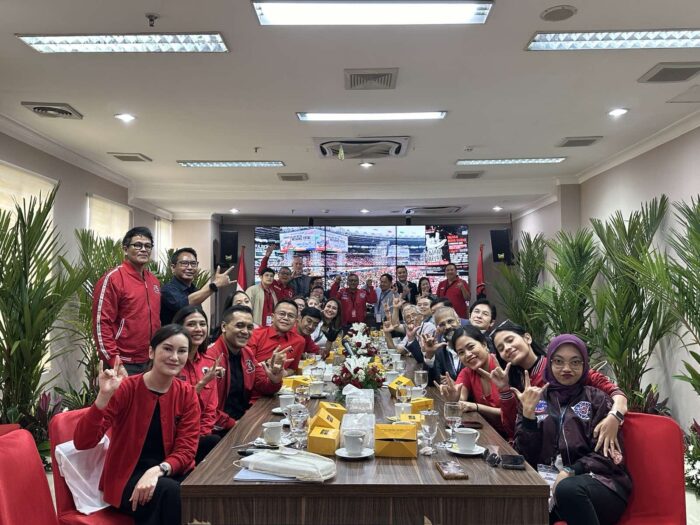
With over 204 million voters, 820,000 voting precincts and 258,000 candidates, Indonesia’s recently concluded elections were considered the biggest single-day electoral exercise in the world. Last 14 February, the world’s third largest democracy held a 5-in-1 elections to choose its president/vice president, members of the senate, members of the house of representatives, and legislative representatives in the provincial and city/district levels. The concurrent elections were also made more complex by the varying electoral systems for each post. With delegates from Cambodia, Malaysia, Philippines, Singapore, Thailand, Timor Leste and the Friedrich Naumann Foundation (FNF) of Germany, the Council of Asian Liberals and Democrats (CALD) went to Jakarta to observe the polls. Prior to election day, the delegates met with representatives from political party, civil society and the academe to contextualize and understand better the key issues and problems in this year’s elections. From the discussion, the following points were highlighted: • Indonesia deserves credit for holding elections of this scale and complexity considering its relatively shorter experience with democracy;
• The 2024 elections were affected by the Constitutional Court’s decision disregarding the age requirement which appeared to have favored one candidate; and
• While Indonesian elections can be considered a “festival of democracy”, several issues remain like the focus on presidential elections and the corresponding lack of attention on legislative elections, the emphasis on personality instead of issues during the campaign, the need for voter education to address the issue of invalid ballots, and the use of pork barrel politics to influence the voters.
By the evening of 14 February, reliable quick counts suggest that the presidential-vice presidential tandem of Prabowo Subianto and Gibran Rakabuming Raka obtained enough votes to avoid a second round. Indonesian Democratic Party of Struggle (PDI-P), however, remained to be the biggest party in the national legislature. The official results may only be known a month after the elections. In the debriefing session, members of the CALD delegation raised the following: the importance of interaction with members of civil society and the academe to get a complete picture of the electoral process; the orderly, open and transparent conduct of the elections, despite their scale and complexity; the necessity of having efficient and independent election commission; the active involvement of the youth in the electoral process; the use of digitalization and AI technology in the campaign, the continuing need for voter education; the importance of having the opportunity to observe vote counting to complete the election observation experience; and the need for political maturity to accept election results. “As a political party network, we are of course very interested on elections – and as Liberals and Democrats, we want elections to be free, fair and honest – to be in accordance with international standards”, said CALD Chairperson Mardi Seng. “The recently concluded Indonesian elections show that while significant progress has been made, there are still a number of issues which need to be addressed in order for the country to have a stronger, more consolidated democracy.” CALD also held its 49th Executive Committee Meeting on the sidelines of the election observation mission.
|
Categorised in: News Article
This post was written by CALD
 Unit 409, 4/F La Fuerza Plaza 2, 2241 Don Chino Roces Ave. corner Sabio St., 1231 Makati City, Philippines
Unit 409, 4/F La Fuerza Plaza 2, 2241 Don Chino Roces Ave. corner Sabio St., 1231 Makati City, Philippines
 +632 8819 60 71
+632 8819 60 71
 info@cald.org
info@cald.org